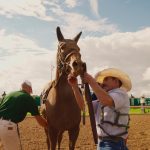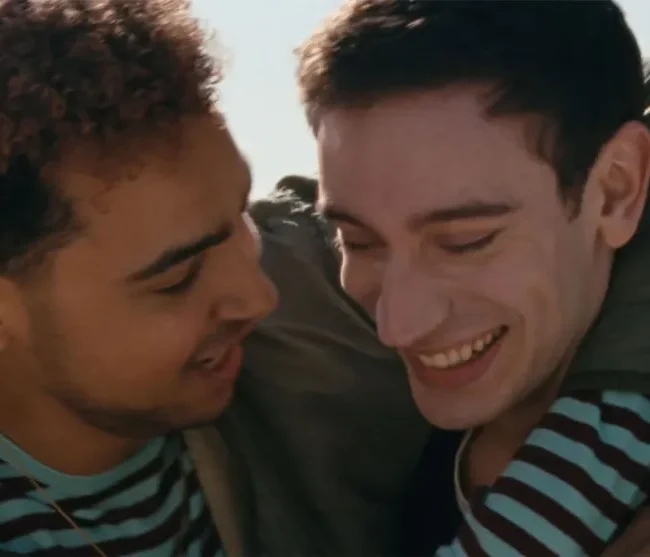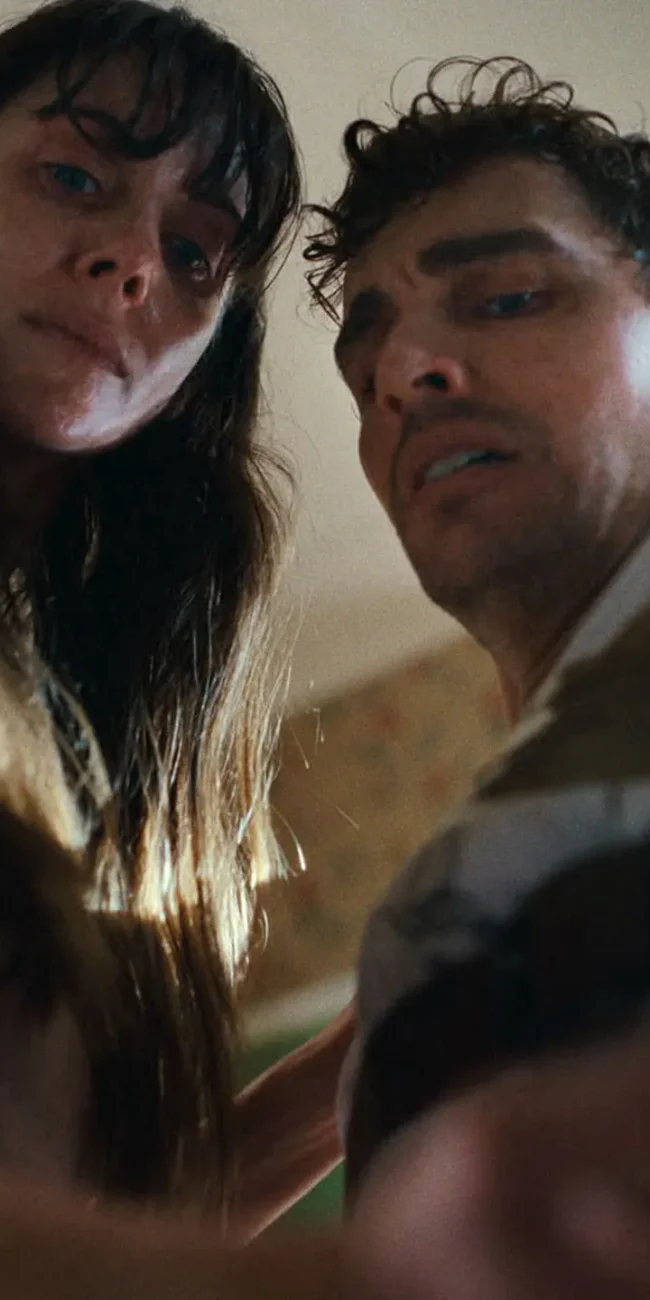A Conversation with Alessandra Lacorazza (IN THE SUMMERS)
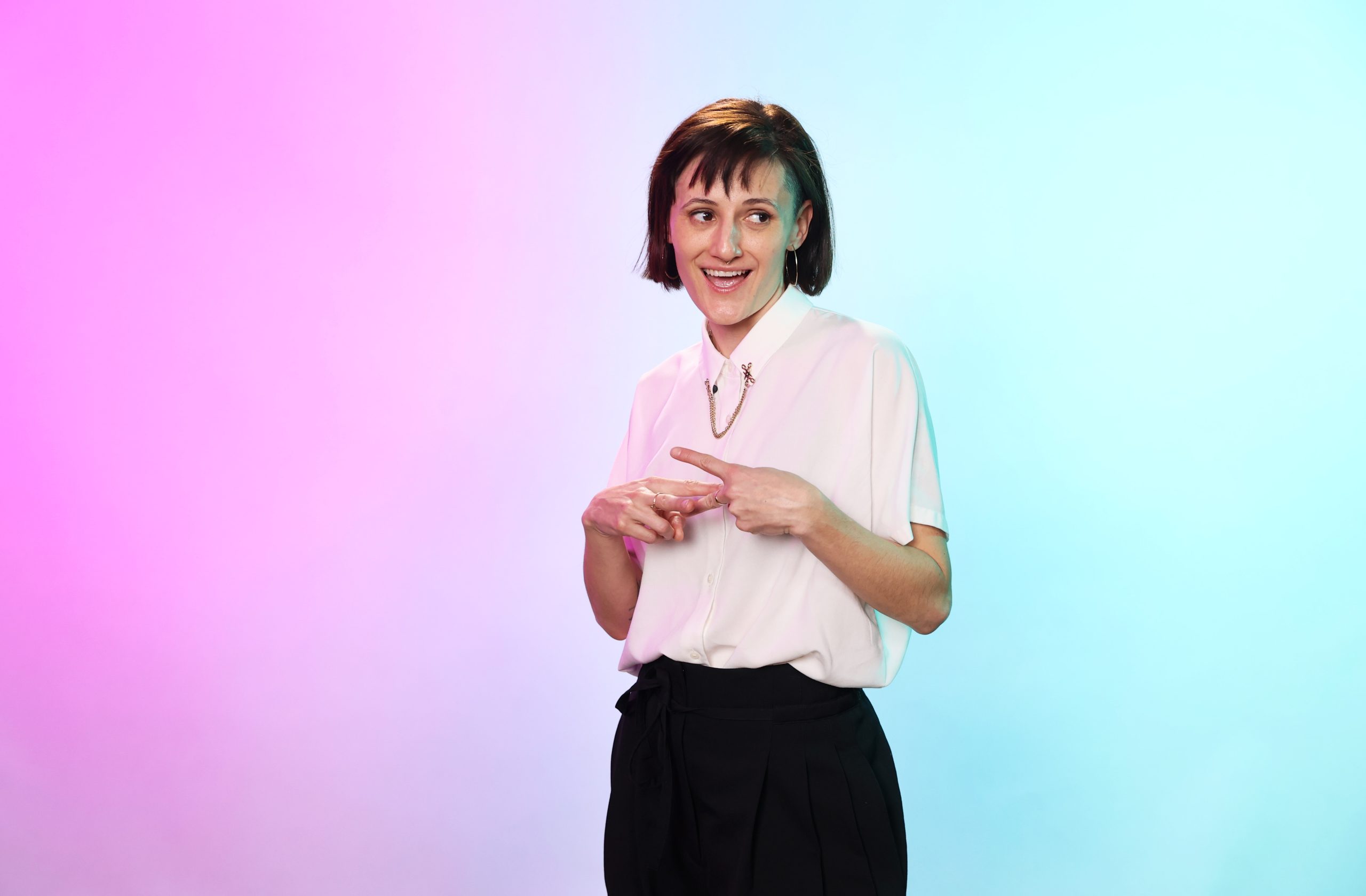
Rising filmmaker Alessandra Lacorazza made waves at the 2024 Sundance Film Festival with her debut feature, In the Summers. The poignant coming-of-age drama, which follows two sisters’ complex relationship with their father over four summer visits, captivated audiences and critics alike. Lacorazza’s nuanced storytelling and keen eye for the intricacies of family dynamics earned her film top honors at Sundance, including the prestigious U.S. Dramatic Grand Jury Prize and the U.S. Dramatic Special Jury Award for Directing. With this remarkable debut, Lacorazza establishes herself as a compelling new voice in American independent cinema, skillfully weaving themes of identity, belonging, trauma, and the enduring bonds of family. It was great to speak with her in the following conversation edited for length and clarity.
Hammer To Nail: I am very curious to hear about your screenwriting process. The film is obviously tightly constructed and very personal, yet, often the way sequences unfold can be so natural it seems slightly improvised. How did the process work for this film? Did you write the film from the first summer on?
Alessandra Lacorazza: Yes, I wrote everything chronologically. That is how my brain works. I had an outline, I knew where it was going, but I did write it in the order it appears on screen. There is actually very little improv in the film. The scenes that did have the most improv were the bar scenes because I wanted the pool playing to feel natural. We definitely worked really hard to make the film feel very natural and lived in. Sometimes we would do a take that was improvised but mostly, it was in the script. This is my first feature script I have ever written, so part of it was that I had no clue what I was doing and I just tried to do it. My process involves a lot of rewriting. I had a first draft that had all the plot, but the soul and the details had not quite come in yet. With each version I felt like I slowly layered that in.
HTN: One of the things I love so much about this movie is how it allows you to experience the fullness of time. It does a great job not only showing how the years change and shape us but how actions have consequences we may not understand for a very long time. Was that something you considered when creating the project?
AL: 100%. It’s still something I consider after completing the project! What I remember as very traumatic points in my life, things my dad or mom may have said, they have zero memory of that stuff. Our experiences are so specific. Those little words can have such a large impact on someone’s psyche. Now that I am a parent, and have a child, it is something I think about a lot. This is something I really wanted to come to life in the film. Those small, mundane moments that make us who we are and perpetuate little traumas that then build to bigger traumas.
HTN: More of a general question, but, The casting in this film is perfect. How did it work?
AL: Thank you so much! I worked with an incredible casting director. Stephanie Yankwitt of TBD casting. We worked on it for a very long time. She really took the time to not only understand the script and its characters but also exactly what I wanted from the characters. I wanted actors that did not feel like “actors.” I wanted it to feel fresh and authentic. It was complicated and it came right down to the wire trying to get everyone sorted. Casting 3 sets of people for one character is difficult because there has to be a through line. It was essential for us to cast the younger and older first so we could have that middle be the bridge.
HTN: Got it, did you guys have an audition process?
AL: We had auditions! We did open casting. I really do not like zoom casting though. You miss so much in how an actor actually interacts with the world when you do not do it in person. At a certain point we had already started productions and there was no other choice than to cast people through zoom. We had to adapt.
HTN: While it’s not drastic changes, with each summer the color palette shifts. What were you and cinematographer Alejandro Meija hoping to create in each of the 4 summers?
AL: Even before I brought on Alejandro, I had a color palette for each summer planned out. For me that was essential and said so much about where the characters were. My conversations with Alejandro were then, “How do we bring this to life?” The other departments were just as important. We all had to be aligned and that was crucial from the beginning.
HTN: Did you guys get to shoot in order?
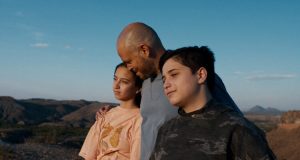
A still from IN THE SUMMERS
AL: I wish!! It would have been way more expensive to shoot in order, especially with the kids. You can only have them on set for a certain amount of time. These were immense challenges. The house had to be flipped over so we really had to cram it all in. Sometimes we would shoot all of the summers in one day depending on location and who was available. It was important to get the actors mentally in the right place. I luckily had a great AD. It was a huge logistical nightmare, but we did it!!
HTN: You definitely did it! In the first summer they all look out at the stars and Eva (Luciana Quinonez) asks if a plane flying by is a shooting star. Vicente (Residente) says, “no,” and chuckles. It’s a small moment in the film but one that stuck with me was what was your thinking behind it.
AL: That one was actually improvised! Young Violeta (Dreya Renae Castillo) improvised that one. There are moments when you keep doing takes and they feel stale after a while. So I told them, “I do not care what the words are, I want to get to that truth.” I am a writer but I do not care about the physical words. I will let the scene go on and not call cut and see if we can get something else and this was one of those moments.
HTN: I’d like to focus on what happens at the pool bar in the second summer. His [Residente’s] remarks about him being 15,000 days old and her not taking the game of pool seriously stood out to me. What was your thinking behind this moment and why was billiards a central component of this story and its characters?
AL: Billiards is a way that he wants to connect. He has a love of it and it’s a way he wants them to connect. The game shows both parts of his personality. It’s a bar game, however, it’s ultimately about angles. It is math and there is a lot of skill to it. Ava takes to that. She really wants to be good at the game. It is part of her self-esteem and her emotional journey. In the third summer She is really trying to reconnect with him through that game. In terms of 15,000 days, that is something my dad used to say. He celebrated milestones instead of his birthday. For Vicente I saw it as a nice quirk that adds to him as a person. Being in the science world and how important numbers are to him was part of the complexity of his personality.
HTN: In the third summer there is the scene where they are playing Yahtzee. It stood out to me as an important moment in Vicente’s character development and in their relationship. Why did you include this moment?
AL: This adds to the theme of games as a way to connect, however, this one goes wrong. He completely belittles her and extinguishes the hope she had for him. She is back that summer to try and rekindle their relationship. She is arriving under the impression that she will be able to reach him and they can have fun together. She is holding onto a memory of him that does not exist at this moment. Games are something we normally associate with silliness and fun but he uses it as a way to feel superior in a time where he is feeling very down. He takes it out on her and it turns out to be a pivotal moment in her development
HTN: In the 4th summer Vicente asks Eva to dance with him while they cook. He puts music on via putting his phone in a bowl. This is reminiscent of Violeta and Vicente’s big fight when she denied his dance request. She stares disturbed as the two of them dance rather lifelessly, What were you hoping to achieve?
AL: This is a culmination of all of that trauma. There are so many moments culminating in this one scene. The dancing is obviously part of it but also the song that you hear is the same song in the shaving scene! It’s not the climax but there is a lot being tied in here. Putting the music in the bowl is representative of his improvisation. He does not have a speaker, obviously this will help amplify the sound. He is almost living like a young ava. Living with that blind optimism hoping to connect, but his daughters are so not there at that point. They are living with their trauma, and this scene really encapsulates so many portions of that trauma.
HTN: I would not describe the film as in your face. It is more quiet and subtle, however, it still feels very geared towards the theatrical experience. The sound design is so intricate. Can you talk about that process and making the film with theatrical exhibition in mind?
AL: I am obsessed with sound. I came up in commercials and all my mentors stressed sound as the most important thing. Getting as much sound as we could in the moment was very important to me. Working with the sound designer to make sure the music added to the soundscape rather than taking us out. The music feels of the scene rather than playing to the emotions. I am very inspired by sound design and it is such a crucial component of filmmaking.
HTN: I’d like to talk about that last shot. Its a very emotional moment and so much of that stems from these incredibly real performances. Why was it important for you to have ended on Eva and Violeta smiling?
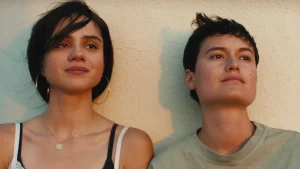
A still from IN THE SUMMERS
AL: The hope. I think it’s very heavy but I wanted to have a little bit of hope in the end. It is their story. For the majority of the film you are seeing their father through their eyes. They are the hope for the future. Having a sister that you are incredibly close with, surviving your childhood and having someone be a witness to it has always been very crucial to me, so I wanted to end with that moment. Even for a small second, I wanted the audience to feel like they might be ok at some point because they have each other and that connection will buffer some of the things their father has done.
HTN: As you’ve said this is a very personal story, however, I am wondering if you watched any films in preparation?
AL: I love movies. La Ciénaga was a major influence on this one. It is one of my favorite films. I love Andrea Arnold and the organic way she approaches her characters. I thought particularly about Fish Tank. Older films like The Last Picture Show and how it uses all these smaller moments to build to something bigger. I have a million influences and they all had a hand in this film.
HTN: So do you think you will remain in this genre?
AL: The next I am writing is a military project with torture as the theme. While I may shift in genre, the themes of the complexity of humans will always remain throughout my work.
HTN: Finally, I would love to hear about your experience at Sundance.
AL: It is still so surreal to me. I have not digested it yet. We finished the film like right before. We were hot off the presses bringing it. Just getting in was a huge achievement. At no point did we think we would win anything. Everyone else had left. I was the only one there with my wife at the award show. I came because I was sick the whole festival and wanted to meet some people! We were late to the ceremony. We parked illegally and got our car towed. We were sitting pretty far back. When they announced my name I threw my phone out of shock. It was so surreal, so beautiful and completely unexpected. It took me a while to find my phone. I had launched it into the stands haha.
– Jack Schenker (@YUNGOCUPOTIS)

